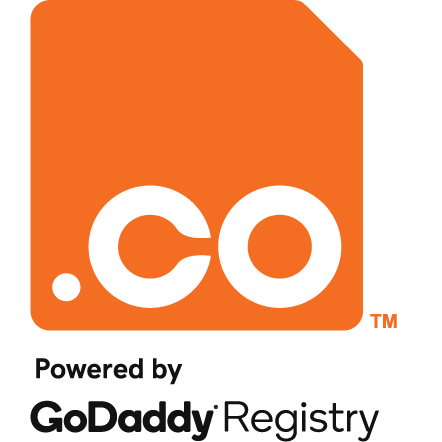Startup entrepreneurs are always looking for ways to work smarter and grow faster. However, small teams and limited budgets mean they can only do so much. That’s why it makes sense to rely on innovative business applications to pick up the slack wherever possible. After all, if other companies have figured out how to organize your business, streamline your processes, and boost your productivity, why not use their know-how to save time and money?
Luckily, you don’t need to go looking for these resources — we’ve done the research for you. Here are some of the best business apps and resources for entrepreneurs in 2018. Put them to use to make this year so you can focus on the big ideas that’ll take your business to the next level.
1. Hotjar
Creating the best user experience possible ensures that people enjoy coming to your website so they’ll purchase products and services. If your goal is to optimize the user experience, Hotjar can help. Hotjar provides heat-maps of your web traffic, as well as a user behavior analysis — where people are clicking and where you’re losing their attention. With this knowledge, you can make sure your website is always making a solid first impression to convert the most traffic possible.
2. Kissmetrics
For most businesses, the bulk of website sales are from repeat customers. To optimize the sales funnel and improve customer retention, Kissmetrics tracks website users from their first point of engagement, through to specific funnels and finally to conversion. Kissmetrics is a great tool for showing you exactly what specific customers are doing on your website and where they’re coming from. The app also enables you to create split-testing campaigns for landing pages and emails so that you can tweak them and improve conversion.
3. Buffer
Most entrepreneurs understand the importance of social media, but managing your social media strategy can not only be confusing but also highly time consuming. With Buffer, you can keep this process efficient by scheduling and publishing posts across a wide variety of social media platforms. Because analyzing the effectiveness of your posts is important, Buffer also includes rich reporting tools to help you strategize the best times to post as well as what content works best.
4. PowToon
In recent years, video has become a powerful tool for startups. Not only does it help them differentiate their brand, it also provides a quick and easy way to explain exactly what they do. In fact, according to some research, having a video on your homepage can increase conversion by 20 percent. To help you take advantage of video, PowToon provides a simple tool to create helpful animated explainer videos and product demos — no coding or design skills required. Even big companies agree it’s great; Coca-Cola, Starbucks, and Google all use it.
5. 99 Designs
Need a new logo or landing page, but not ready to jump in and try to design it yourself? Often, when it comes to website or blog logo design — or anything related to graphic design — you’ll need expertise. That’s where 99 Designs can help. The website offers a tool for reaching out to the global design community to find your ideal design match. To get started, all you do is fill out a design brief, buy a custom design package, and then launch a design contest. Designers from all over the world will sign up to participate, sending you their ideas. You simply choose the design you like best.
6. Bannerstack
Bannersnack is an easy-to-use banner ad creation app. It enables you to singlehandedly design and create banner ads, display advertising, and Facebook ads without any coding skills. Your results can be downloaded into a variety of formats, including HTML5, Flash, JPG, GIF, PNG, and MP4. As a result, they are compatible with all the major ad networks, such as Google Adwords, RightMedia, and OpenX. Professionally designed templates and images are all provided, but you can also opt to start from scratch with your own images and designs.
7. Freshbooks
Financial tasks like bookkeeping and invoicing can take you away from other work that might feel more important. So why not make accounting as quick and easy as possible? Freshbooks enables you invoice clients, track your time, and run your small businesses all from a simplified user-friendly interface. While it once focused on freelancers who were billing for hourly time, today it integrates with numerous third-party platforms, like PayPal, Woocommerce, and ZenPayroll, to better serve a wider audience.
8. Boomerang
This app is a great productivity app if you use Gmail as your primary email platform. It adds functionality to Gmail that you wish it provided on its own. Use it to temporarily archive messages in your inbox and be reminded about them later. You can also pause the arrival of new mail to avoid distractions. Another valuable feature is its scheduling tool, enabling you to write emails and schedule emails to be sent later. This is great for people who want to send marketing emails but who don’t need a full-scale email tool.
9. Calendy
With everyone so busy these days, scheduling a meeting can be a big hassle. Instead of sending countless emails to everyone involved, why not use Calendy to eliminate the issue altogether? An appointment setting app, Calendy lets you share your availability and enables people to book meetings with you using a few clicks. To avoid scheduling conflicts, it integrates with Google and Office 365 calendars. The basic service is free, but if you want to schedule team meetings and benefit from other add-ons, there’s a nominal monthly fee.
10. LastPass
Security and encryption are critical in the digital age. Unfortunately, keeping your business and personal details safe means juggling dozens of unique and complicated user names and passwords. To avoid the hassle of losing important login information, LastPass securely stores all your important credentials. It also allows you to share them with teams as necessary. Other helpful features include auto-fill for payment and shipping details, as well as storage of useful information like Wi-Fi access codes and insurance numbers.
11. Typeform
If you send out boring surveys to your customers, they’re likely to be ignored. And if you can’t get helpful feedback, then you won’t know whether you’re going in the right direction. Typeform makes it easy to build and share good-looking interactive surveys. Its focus is on creating a fun user experience to boost survey conversion rate. An easy-to-use interface and customizations (like URL, colors, and text) ensure that your surveys get a much-needed makeover with as little effort as possible.
12. HelloSign
The business world is increasingly paperless these days, and this app helps you get there faster. Use this legally binding document signing app to send contracts and request signatures virtually so that you can close deals faster. HelloSign can be used to request signatures from up to 20 people simultaneously. To make things even simpler, when a document is fully executed, everyone gets a copy back automatically. Plus, it integrates with numerous platforms, including Google Drive, Box, Dropbox, Evernote, HubSpot, and Slack.
13. Namely
When it comes to human resources platforms, customization is key to usability. Administrators need to be able to set up the system to accommodate internal processes. All-in-one HR app Namely has a high degree of configurability, giving admins almost complete control of how it looks and works. Use it to manage payroll, benefits, time off requests, organizational charts, employee profiles, personnel records, and more.
14. Lever
Managing and tracking job applicants can be a complex process. That’s where Lever comes in. This app streamlines the recruiting process from start to finish. It includes functionality for referrals, emailing, candidate management, interview, and resume tracking. Integration with LinkedIn means you can automatically create applicant entries from existing profiles and avoid duplication. A dashboard helps you track and manage every posting to keep the applicant pipeline full until the position is filled.
15. Buzzsumo
Looking to keep your customers engaged on social media? Then Buzzsumo is an invaluable tool. It’s the perfect place to go when you’re trying to brainstorm article topics with good keywords, but keep coming up short. Use Buzzsumo to find popular and timely content that’s being shared across social media by people you want to reach. Then riff on those topics based on your own expertise. You can also analyze use it to track competitors and identify key influencers to promote content.
16. Zendesk
Offering your customers great help desk support is invaluable to creating brand loyalty. But to do this well, chances are high that your business spends considerable time and expense making it happen. Streamline processes to save on costs with Zendesk. This app makes it easy to handle customer problems quickly and efficiently. It includes a wide range of support services, including online chat, customer ticket management, and a reports dashboard.
17. Clarity.FM
Mentors are invaluable for entrepreneurs who are trying to make their startup dreams come true. However, a lot of times getting the best advice depends on who you know. Instead of always tapping into your existing network to connect with the right people, you can use Clarity.FM to pay for strategic entrepreneurial advice from a community startup experts. Fortunately for small businesses on limited budgets, top experts who participate don’t charge prices that’ll break the bank.
18. HARO (Help a Reporter Out)
Small businesses looking for media attention often believe they have to pay a public relations firm thousands of dollars to get the job done. But why not use HARO instead? Founded a decade ago as a Facebook page, today HARO is a serious business that connects business owners with reporters looking for a good story. The way it works is when reporters need a source for a topic, they post a query on HARO. Scan the postings regularly, respond to relevant queries, and land interviews to gain high-value media coverage.





